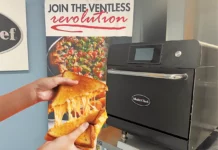
Article contributed by Steven R. Nevolis, Ellenoff Grossman & Schole LLP
“I’m not nickel and diming workers,” the National Labor Relations Board (“NLRB”) General Counsel explained to a restaurant management trade group this past October.
This statement served as an unequivocal warning to all restaurant industry employers that the NLRB will take seriously any efforts that can be seen to discourage or suppress union activity among its employees. These businesses are now on notice and need to act accordingly. The first step is ensuring managers are well-versed in the aspects of labor law and employee relations that affect their day-to-day duties to ensure they do not fall victim to the many pitfalls of which they may be unaware.
I. Unionization and the Reinvigorated NLRB
Unionization in the United States has seen a resurgence since the COVID-19 pandemic. Employees felt slighted during the peak of the pandemic and employee and public approval of labor unions is swinging decidedly in favor of those unions. In fact, the NLRB’s own statistics support this trend, as there has been a 53% increase in union representation petitions from 2021 to 2022, an increase that has continued into the current year. What is surprising, however, is that union activity has seen an uptick in the food service industry – an industry with historically low union rates. Even more unexpected is how these labor relations issues, usually newsworthy only to industry and legal professionals, have been picked up by multiple media outlets.
Recently, union drives have become somewhat commonplace at establishments such as Starbucks, Chipotle, and McDonald’s. While not all culminate in a successful union vote, actions taken by employers during these contested union drives have garnered unwanted attention. For example, when Starbucks terminated seven employees in Memphis, Tennessee, who were involved in unionization efforts, for reasons Starbucks argued were unrelated, the NLRB immediately went to court to reinstate those employees. The NLRB won that battle and made national news. Recently, Starbucks’ decision to terminate another employee prominent in the union movement has been covered in the news. In the same vein, Chipotle’s decision to close a store that was subject to a unionization drive was covered by national news outlets. Unionization drives are not solely targeting these types of establishments, as a high-end restaurant in New York City recently underwent a union election as well.
To add to this reinvigorated union environment, the NLRB signaled its willingness to not only support employees to the greatest extent possible, but also render decisions that continue to bolster employee rights under the National Labor Relations Act (“NLRA”), the law the NLRB enforces. This includes recent decisions reducing confidentiality protections in separation agreements, guidance regarding heightened scrutiny on “captive audience” meetings, and a lengthy memorandum where the NLRB specified enforcement areas, all bolstering employee rights. This is coupled with the NLRB’s actual enforcement actions including seeking reinstatement for employees, and adding new potential damages that employers may be liable for if found to have violated labor laws. Employers are navigating in uncharted waters at this point and must do so carefully.
II. Manager Training is Essential
When looking at this new labor law reality, employers can be forgiven for not even knowing where to start addressing these issues in their organization – but there is a simple answer. Labor relations issues start and begin with on-the-ground employees and the managers who supervise them. The law is tricky, and managers may not even be aware of potential violations their conduct may create. Accordingly, management training on labor relations matters is a serious consideration for any hospitality business looking to address this thorny area of law.
As mentioned above, the NLRB enforces the NLRA, which is the law that protects the rights of employees to engage in “protected concerted activity” regarding their terms and conditions of employment. This means that employees are allowed to engage in activity or discussions that touches upon their terms and conditions of employment, including wages, working hours, and safety, among other topics. Importantly, the NLRA applies to both unionized and non-unionized workforces, so managers at all institutions must be knowledgeable on the law and its caveats. The NLRA also governs how managers can act during union organizing drives and union elections involving their employees.
Managers should receive training to clarify for them the scope of labor law implications in their day-to-day interactions with their employees, as well as some “dos and don’ts” regarding employee communication and employment decisions. Training should also address how managers may interact with union representatives in general. Businesses should establish reporting lines throughout the organization for managers to consult when faced with a difficult situation that may implicate labor law (or any other employment law). Additionally, training must be held on a regular basis, and new managers, either those hired or promoted from within, should receive this training as part of their-onboarding process.
While it may seem like a burden adding one more required training to an already over-burdened managerial staff, in a situation such as this, an ounce of prevention may very well be worth a pound of cure.
 Steven R. Nevolis is a Partner in the Labor & Employment practice group at Ellenoff Grossman & Schole LLP in New York City. His practice encompasses a broad spectrum of services for management-side clients, including employment litigation and class actions, employment law compliance counseling, and traditional labor work in unionized work forces. Steven understands the increasing complexity of legal issues facing employers and the resulting challenges to effectively managing a workforce. To assist his clients, Steven frequently provides advice regarding compliance with various federal, state, and local laws, such as the Fair Labor Standards Act, Title VII of the Civil Rights Act of 1964, Family and Medical Leave Act, New York Labor Law, and the New York State and New York City Human Rights laws. Steven R. Nevolis can be reached via email at snevolis@egsllp.com or by phone at 212-370-1300.
Steven R. Nevolis is a Partner in the Labor & Employment practice group at Ellenoff Grossman & Schole LLP in New York City. His practice encompasses a broad spectrum of services for management-side clients, including employment litigation and class actions, employment law compliance counseling, and traditional labor work in unionized work forces. Steven understands the increasing complexity of legal issues facing employers and the resulting challenges to effectively managing a workforce. To assist his clients, Steven frequently provides advice regarding compliance with various federal, state, and local laws, such as the Fair Labor Standards Act, Title VII of the Civil Rights Act of 1964, Family and Medical Leave Act, New York Labor Law, and the New York State and New York City Human Rights laws. Steven R. Nevolis can be reached via email at snevolis@egsllp.com or by phone at 212-370-1300.























